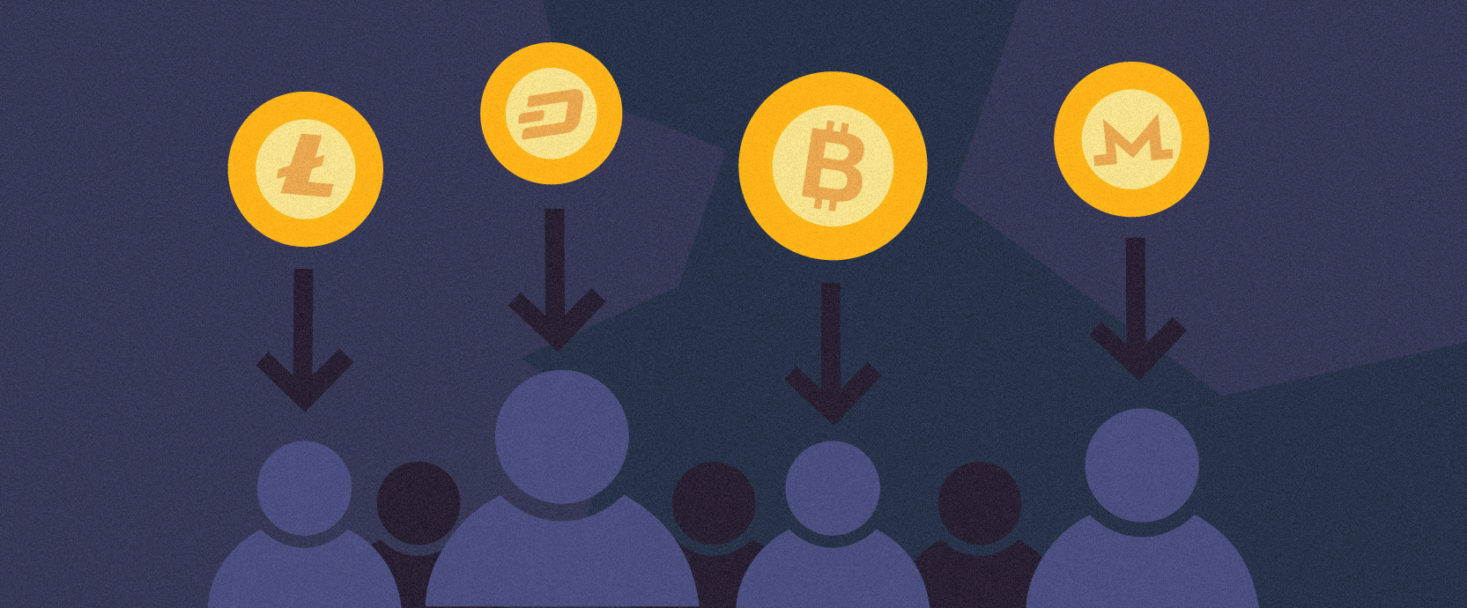An Initial Coin Offering (ICO) is when a company raises the capital it needs to bring its idea to market by offering investors its own digital tokens (rather than shares) in exchange for cryptocurrency. Like shares, if the company is successful these tokens rise in value.
Here’s an example:
Company X is looking to raise some funds to develop a new blockchain-based social network — let’s call it Bitter (get it, like Bitcoin and Twitter… never mind).
Anyway, Company X announces that it’ll be launching an Initial Coin Offering (ICO) to raise 2,500 bitcoins (or around $10 million based on the price of bitcoin at the time) that it will put towards developing the platform.
To raise the 2,500 bitcoins, they’ll be selling their own Bitter Token at a value of 10,000 Bitter Tokens per bitcoin. They’ll be issuing a total of 25 million Bitter Tokens in order to raise 2,500 bitcoins.
Anyone can participate in the token sale by simply buying as many Bitter Tokens as they want in exchange for bitcoins. Once you’ve paid in bitcoin, the corresponding amount of Bitter Tokens will be transferred to you.
Owning Bitter Tokens doesn’t actually equate to owning equity in Company X (as you would in an IPO — but we’ll come to that soon). Instead, you will own Bitter Tokens in the speculation their value will increase.
Because Bitter Tokens were sold for a set amount of bitcoins, they have inherent value. Once the ICO is over and all 25 million have been sold (if that’s the case), they may end up being traded for higher or lower value within currency exchanges.
Meanwhile, Company X can use the funds they raised in bitcoins to develop the Bitter platform. They might also withhold some Bitter Tokens in order to benefit from future price increases.
ICO vs IPO: What’s the difference?
While there are some similarities between an Initial Public Offering (IPO) and an Initial Coin Offering (ICO), there are a few major differences between the two. To keep things simple, I’ll break down these differences into four key areas:
1. Requirements
To launch an IPO, a company needs to meet several requirements.
For example, to get listed on the NASDAQ stock exchange, a company has to “have aggregate pre-tax earnings in the prior three years of at least $11 million, in the prior two years at least $2.2 million, and no one year in the prior three years can have a net loss” (source).
This means a business needs to have been around for years to qualify for an IPO.
ICOs are almost the complete opposite — a company doesn’t need to meet any requirements to launch one. They don’t even need to get listed on an exchange, as they gain liquidity from the token offering itself.
2. Regulations
IPOs are strictly regulated around the globe. For example, anyone investing in an IPO must go through a Know Your Customer (KYC) check that verifies their identity and helps prevent money laundering.
While ICOs are beginning to become more regulated (and even banned in some countries), they are ultimately still self-governed. Investors don’t need to go through a KYC to invest in them, and each investor remains anonymous.
3. Issuance stage
A company will go through an IPO after they’ve already got a fully developed product or service to market. The company will have usually already taken on private investment, and an IPO serves as its first liquidity event for the early investors.
An ICO usually happens at the very start of a company’s lifetime. Usually, only accredited investors (e.g. people with a net worth of over $1 million) get the chance to make traditional early-stage investments and reap the potential rewards of large long-term growth in value. Because ICOs are unregulated and anonymous, they open this kind of investment up to everyone.
4. Ownership
In an IPO, each investor is buying equity within a company which promises to share its profits with them. They own an actual part of the company, however small.
In an ICO, don’t own any equity in the company at all.
Instead, investors are able to benefit from increases in the value of the token they’ve purchased, or sometimes use them as a currency to use their platform.
Initial Coin Offering (ICO) vs Initial Public Offering (IPO)
| ICO | IPO | |
|---|---|---|
| Requirements | None. | Many, including minimum yearly earnings, market capitalization and much more. |
| Regulations | Self-regulated. | Know Your Customer (KYC). |
| Issuance Stage | Early stage. | Later (usually 4 years+). |
| Ownership | Token, plus access to services. | Equity and ongoing dividends of profits. |
It’s likely that once the ICO market begins to mature, more and more regulations will be put in place to govern it.
Right now, it’s important that investors do as much due diligence as possible so they’re aware of all the risks involved before parting with their cash.
Disclaimer: The contents of this article should not be taken as direct investment advice. Please do your own independent due diligence before making any investments, whether this is cryptocurrency or otherwise.





Leave a Reply